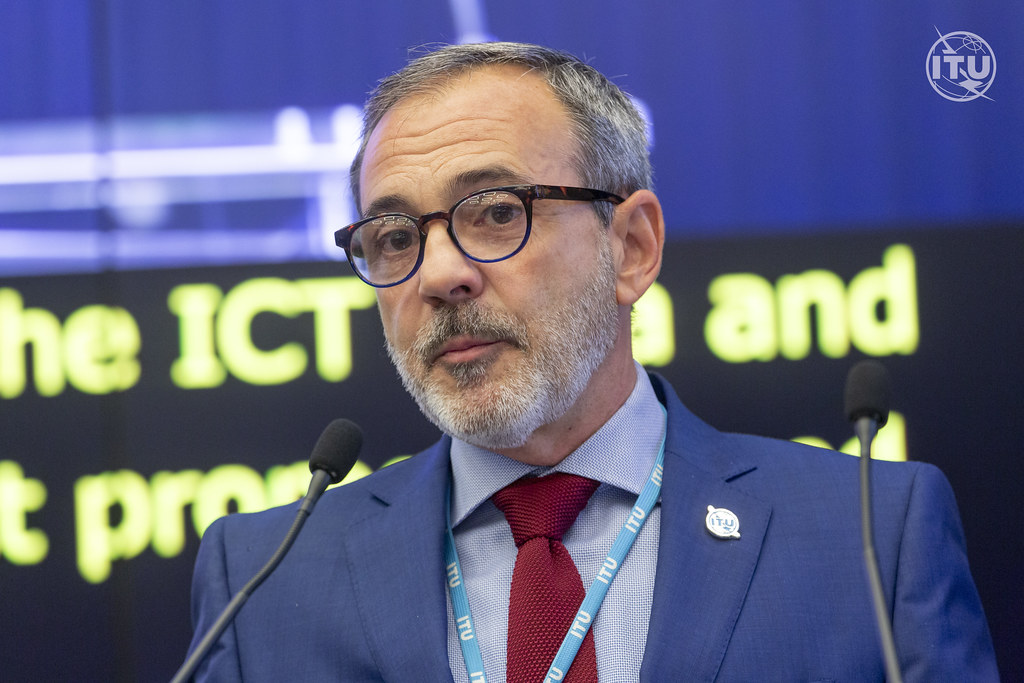São Paulo
Brazil
- Angel Draev
- Ghazi Mabrouk
- Jose L. CERVERA-FERRI
Advanced
Event Organizer(s)


Supported by

Description
This face-to-face training focuses on enhancing skills for using ICT statistics to design, monitor and evaluate public policies to achieve Universal and Meaningful Connectivity.
The course covers the role of digital public policies in achieving Sustainable Development Goals through Universal and Meaningful Connectivity, evidence-based ICT governance, and the use of ICT indicators such as measures of connectivity, affordability, and skills—for policy development and evaluation. It also addresses the social, economic, and environmental dimensions of ICTs and explores challenges and opportunities in compiling, analysing, and disseminating ICT statistics in developing and transitioning countries.
Interactive sessions will focus on developing case studies informed by ICT statistics to generate insights and recommendations for policymaking.
With the generous support of the Global Gateway initiative of the European Union and the contribution of Cetic.br|NIC.br, this course is offered for free for selected participants. This includes accommodation, meals, and extracurricular activities. Participants or their organizations will be responsible for covering their travel expenses to Sao Paulo, Brazil and, if necessary, visa application costs.
This course is intended for:
- Officials of Ministries responsible for digital policies and telecommunications regulatory authorities.
- Policy analysts, from national and regional organisations in the field of digital policies and telecommunication regulation.
- Data analysts, researchers and policymakers.
The course is limited to 30 participants.
Members of the above-mentioned target population are invited to apply for the training if they meet the following criteria:
- Hold an undergraduate degree in a relevant field or have a minimum of three years of experience in using statistics for digital policies.
- Possess a fluent level of English.
- Willing to complete the mandatory online self-paced courses to strengthen their understanding of measuring digital development. Completion of this phase is required to attend the in-person course.
Government officials and policymakers from developing countries, particularly women, are encouraged to apply.
By the end of this course, participants will be able to:
- Understand the economic, social and environmental opportunities and threats of digital development and the role of digital policies to achieve the SDGs through Universal and Meaningful Connectivity.
- Interpret data on ICT infrastructure, connectivity quality, affordability, access, usage, and skills.
- Use ICT statistics (statistical reports, research papers) to inform and evaluate digital policy decisions.
- Produce impactful data-driven presentations on country cases.
The course is organised over one week with a blend of interactive lectures and empirical exercises. The elements have been carefully chosen to provide an overview of the most important and emerging aspects of ICT statistics.
The course features interactive lectures, empirical exercises, networking events, group-based peer learning, presentation sessions, case study applications, and supplementary readings for deeper understanding.
Upon selection, participants must complete the following online self-paced training courses on ITU Academy before attending the in-person training:
- Measuring digital development: ICT access and use by households and individuals
- Measuring digital development: telecommunication/ICT Indicators
Training materials, including presentations and readings will be made available through the ITU Academy Platform.
Grading Matrix
During the course participants will engage in hands-on exercises in allotted groups. At the end of the week groups are invited to present their country case, in the form of a poster, to experts and to their peers.
Participants will be required to take active part in all the activities of the Summer School. At the end of the course, participants will receive an ITU certificate of completion.
- Active participation: 40%
- Course assignment (poster presentation): 60%
The poster submissions will be graded based on the following grade scale:
- Content: 50%
- Structure: 10%
- Clarity and Logic: 20%
- Punctuality: 10%
- Engagement: 10%
A minimum total of 70% is required in order to obtain the course certificate.
Day 1 (11 May 2026):
- Welcome Session
- The concept of Universal and Meaningful Connectivity (UMC) and its statistical monitoring framework
- The contribution of digital technologies in achieving the SDGs
- Overview of ICT statistics and the associated international standards
- Introduction to the group work
Day 2 (12 May 2026):
- Introduction to public policies and governance in the field of ICT
- Quantitative assessment of Digital policies: the ITU G5 Benchmark and the ITU Regulatory Tracker
- Infrastructure and connectivity quality indicators
- Infrastructure maps
- Analysis of Indicators
Day 3 (13 May 2026):
- Statistics on household access and individual use of ICT
- Presentation on the Measurement of Prices of ICT Services
- Socioeconomic challenges and the digital divide
- Comparative Analysis of ICT Adoption
Day 4 (14 May 2026):
- Economic aspects of digital policies
- Use of statistics for evidence-based digital policies
- Translating Analysis of ICT Data for Public Policy
Day 5 (15 May 2026):
- Presentations
- Closing Ceremony
Financial support available
ITU will cover training content, accommodation for 5 nights, meals and training activities.
Tutors












